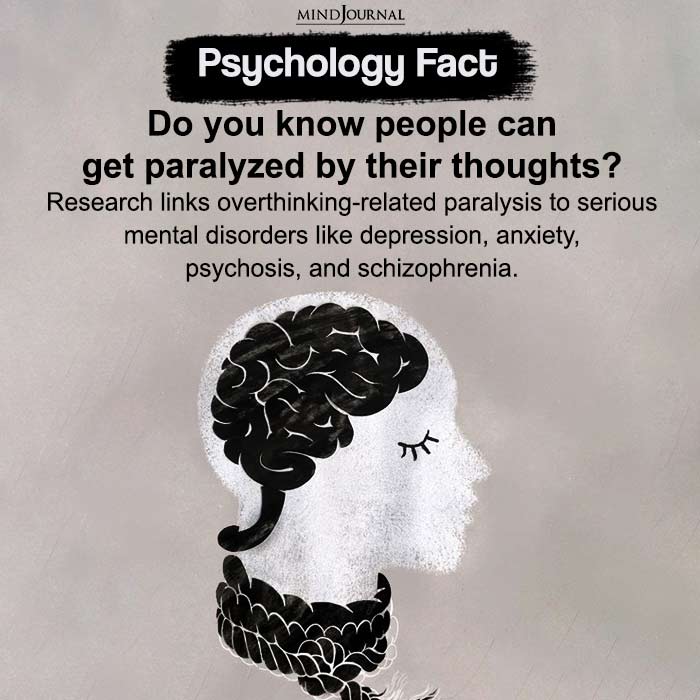Unable to control excessive, intrusive thoughts? Is overthinking keeping you up all night? Are you suffering from an excessive thinking disorder? If yes, then you’re not alone. Let’s explore how to stop overthinking at night when trying to sleep.
Goodbye sleep?
So you are lying in bed, exhausted after a long, tiring day and ready to fall asleep. But an unpleasant thought suddenly creeps into your mind. You try to shake it off, but the more you do, the more the thought grows.
It calls in its friends – fear of uncertainty, anxiety and insecurities – to gang up on you. And before you know it, you are in the grasp of overthinking. Now these thoughts buzz through your head and keep you from falling asleep at night.
Overthinking or excessive thinking can make it very difficult to sleep, leaving you exhausted during the day. Many people struggle with overthinking at night when trying to sleep. An estimated 30 to 40 percent of adults experience some form of insomnia, and overthinking is a common cause.
Fortunately, there are several strategies you can use to learn how to stop overthinking the past at night, help calm your mind and get the restful sleep you need. But before we do that, let’s learn a little more about excessive thinking and why we tend to overthink before sleep.
Related: Overthinking Before Sleep? 8 Ways To Avoid Racing Thoughts At Night And Sleep Better
What is overthinking?
Overthinking refers to the act of dwelling on a particular thought or problem for an extended period of time, often to the point of causing distress or anxiety.

It involves excessively analyzing and dissecting a situation, and often leads to negative self-talk and worry. Overthinking can be triggered by a range of factors, including stress, anxiety, depression, and past experiences.
While some level of reflection and analysis can be helpful, excessive overthinking can be detrimental to one’s mental health and well-being. When left unaddressed, it can even lead to excessive thinking disorder.
So how to stop overthinking at night when trying to sleep? Learning to identify triggers and developing coping strategies, such as mindfulness, can help individuals manage overthinking and reduce its negative impact.
What is excessive thinking disorder?
Excessive thinking disorder is not an official medical or psychological diagnosis. However, it may refer to a condition known as rumination disorder or obsessive-compulsive disorder (OCD).
Rumination disorder is a condition in which a person spends a lot of time thinking about and replaying past experiences or events, often to the point of interfering with daily life.
People with rumination disorder who don’t know how to stop overthinking the past may also have difficulty sleeping, experience social isolation, and may be at risk of depression and anxiety.
Obsessive-compulsive disorder (OCD) is a mental health disorder in which a person experiences recurrent and intrusive thoughts, images, or impulses (obsessions).
These are often followed by repetitive behaviors or mental acts (compulsions) that are intended to reduce anxiety or distress. OCD can interfere with daily life and cause significant distress and anxiety.
It’s important to note that excessive thinking or rumination is a common experience for many people and does not necessarily indicate a disorder.
However, if excessive thinking disorder is interfering with your daily life or causing significant distress or anxiety, it may be helpful to seek professional help from a mental health provider.
Why do we overthink at night?
Before we can learn more about how to stop overthinking at night when trying to sleep and explore some tricks to stop overthinking, let’s identify some of the causes as it can help us in our healing journey.
There are several reasons why we may be more prone to overthinking at night:
1. Lack of distractions
During the day, we have many distractions to keep our minds busy, such as work, socializing, and hobbies.
At night, however, when we’re lying in bed, there are fewer distractions, which can make it easier for our minds to wander and for worries to take over.
2. Increased cortisol levels
Cortisol is a hormone that is released in response to stress. Cortisol levels are naturally higher in the morning and gradually decrease throughout the day.
However, for some people, cortisol levels may remain high at night, which can make it harder to relax and fall asleep, leading to overthinking.
3. Anxiety and worry
Anxiety and worry are common triggers for overthinking. When we’re feeling anxious or worried, our minds can get stuck in a loop of negative thoughts and scenarios, which can be difficult to break out of, especially at night when we’re alone with our thoughts.
4. Lack of structure
For some people, the lack of structure and routine at night can lead to overthinking. Without a set bedtime routine or activities to wind down before bed, the mind may continue to race and be more prone to overthinking.
5. Poor sleep habits
Poor sleep habits, such as irregular sleep schedules, excessive napping, or consuming caffeine or alcohol before bed, can disrupt the body’s natural sleep-wake cycle and make it harder to fall asleep. This can lead to overthinking and worry about not being able to sleep.
Understanding the causes will empower us to learn how to stop overthinking the past in a better way. It’s important to note that overthinking at night is a common experience for many people and does not necessarily indicate a disorder.
However, if overthinking is interfering with your daily life or causing significant distress or anxiety, it may be helpful to seek professional help from a mental health provider.
Related: 10 Ways To Stop Ruminating
How to stop overthinking at night when trying to sleep

Now that we have a clear understanding of the concept, let’s explore some tricks to stop overthinking. Here are nine effective ways to stop overthinking at night and get the restful sleep you need.
1. Practice mindfulness
Mindfulness means being aware of the present moment and observing your thoughts without passing judgment. When you practice mindfulness, you can learn to recognize when your mind is wandering and bring your attention back to the present moment.
This can be particularly helpful when you’re trying to sleep and your mind is racing with thoughts and worries. To practice mindfulness, try focusing on your breath. Take slow, deep breaths and pay attention to the sensation of the air moving in and out of your body.
If your mind starts to wander, gently bring your attention back to your breath. You can also try a guided meditation or mindfulness exercise to help you relax and calm your mind.
2. Write it down
Writing down your thoughts and worries can be a helpful way to release them from your mind. When you write down your thoughts, you can see them more clearly and objectively, which can help you gain perspective and reduce their power over you.
Try keeping a journal by your bed and writing down any thoughts or worries that come up when you’re trying to sleep. You don’t have to write a lot, just a few sentences or bullet points can be enough.
Once you’ve written them down, try to let them go and return to focusing on your breath. Journaling is a great way to understand how to stop overthinking the past.
3. Create a worry list
If you find yourself overthinking the same things over and over again, try creating a worry list. Write down the things that are worrying you and commit to addressing them during the day. This can help you feel more in control of your worries and reduce their power over you at night.
When you’re lying in bed and your mind starts to race with worries, remind yourself that you’ve already written them down and that you’ll deal with them tomorrow. This can help you let go of your worries and focus on getting the restful sleep you need. This is how to stop overthinking at night when trying to sleep.
4. Establish a bedtime routine
Establishing a bedtime routine can help signal to your body and mind that it’s time to start winding down and preparing for sleep. Your routine can include activities that help you relax, such as taking a warm bath, reading a book, or practicing gentle yoga or stretching.
Try to establish a consistent bedtime and wake-up time, even on weekends. This can help regulate your body’s natural sleep-wake cycle and make it easier to fall asleep and wake up feeling rested. This is one of the simplest tricks to stop overthinking.
5. Limit screen time before bed
Electronic devices, such as smartphones, tablets, and computers, emit blue light that can disrupt the production of melatonin in your body, which is responsible for regulating sleep. As a result, falling asleep and staying asleep can become more difficult.
To mitigate the negative effects of blue light on your sleep, it is recommended to limit your screen time before bedtime. It is best to avoid using electronic devices for at least an hour prior to sleep.
Instead, try reading a book, listening to calming music, or practicing a relaxation exercise.
Want more tips and tricks to stop overthinking? Read on.
6. Create a relaxing sleep environment
Creating a relaxing sleep environment can help you feel calm and comfortable when you’re trying to sleep. This can include things like using comfortable bedding, keeping your bedroom cool and dark, and minimizing noise.
If you find it difficult to sleep in complete silence, you can try using a white noise machine or a fan to create a soothing background noise. You can also try using aromatherapy, such as lavender essential oil, which has been shown to have calming effects on the body and mind.
7. Practice progressive muscle relaxation
Progressive muscle relaxation is a technique that involves tensing and then relaxing each muscle group in your body. This can help release tension and promote relaxation throughout your body.
To practice progressive muscle relaxation, start by tensing the muscles in your toes and holding for a few seconds before releasing. Then move up to your calves, thighs, buttocks, abdomen, chest, arms, hands, neck, and face, tensing and releasing each muscle group in turn.
Related: How Overthinking Affects Your Life (and 6 Ways To Stop)
8. Exercise regularly
Regular exercise has been shown to have a positive effect on sleep quality and can help reduce anxiety and stress. Try to engage in moderate-intensity exercise for at least 30 minutes most days of the week.
However, try to avoid exercising too close to bedtime, as this can stimulate your body and make it harder to fall asleep.
Ideally, you should finish exercising at least 2-3 hours before you plan to sleep. This is a great tip when wondering about how to stop overthinking at night when trying to sleep.
9. Practice gratitude
Practicing gratitude can help shift your focus away from worries and negative thoughts and toward the positive aspects of your life.
Before you go to bed, try taking a few moments to think about the things you’re grateful for. This can be anything from a good conversation you had with a friend to a beautiful sunset you saw during the day.
Focusing on the positive aspects of your life can help put your worries into perspective and reduce their power over you. It can also help promote feelings of calm and contentment, making it easier to fall asleep and stay asleep.
There you go! Now you know how to stop overthinking at night when trying to sleep. By incorporating these strategies into your nightly routine, you can learn to let go of your worries and enjoy a peaceful and restful night’s sleep.

Takeaway
Overthinking at night when trying to sleep can be a frustrating and exhausting experience. However, there are several strategies you can use to help calm your mind and stop overthinking.
From practicing mindfulness to establishing a bedtime routine and creating a relaxing sleep environment, there are many effective ways to promote restful sleep and reduce anxiety and stress.
So the next time you find yourself lying awake at night, try one of these techniques and see how it can help you stop overthinking and get the rest you need.
Related: 11 Mental Tricks To STOP Overthinking
Frequently Asked Questions (FAQs):
How do I get rid of excessive thinking?
Engage in mindfulness practices, such as meditation and deep breathing, to help quiet the mind and reduce excessive thinking.
What is overthinking a symptom of?
Overthinking can be a symptom of anxiety, depression, or other mental health conditions, and can also be a habit.
Why do I constantly keep overthinking?
There can be various reasons for constant overthinking, such as anxiety, stress, fear, perfectionism, or a tendency towards rumination.










Leave a Reply